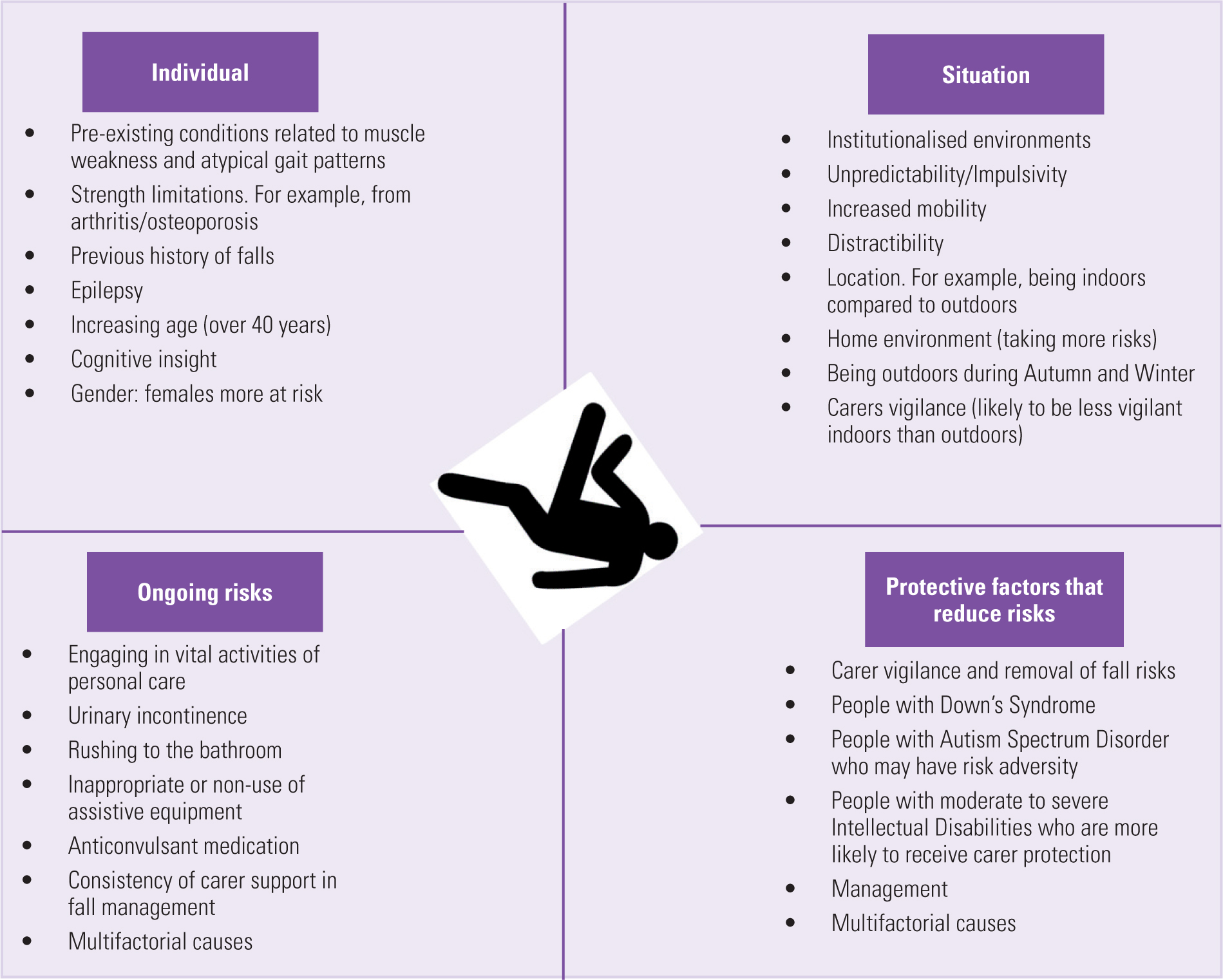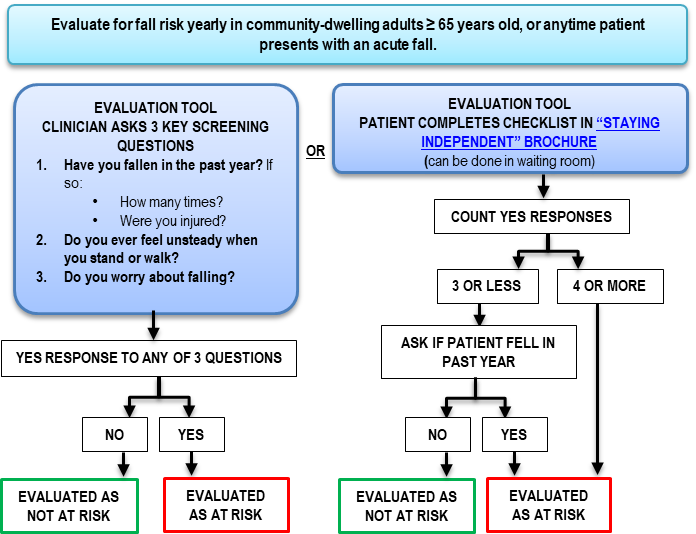The Definitive Guide for Dementia Fall Risk
The Definitive Guide for Dementia Fall Risk
Blog Article
Dementia Fall Risk for Beginners
Table of ContentsWhat Does Dementia Fall Risk Do?Dementia Fall Risk - TruthsDementia Fall Risk Things To Know Before You BuyThe 5-Second Trick For Dementia Fall RiskHow Dementia Fall Risk can Save You Time, Stress, and Money.
Ensure that there is an assigned location in your clinical charting system where team can document/reference scores and record pertinent notes associated to fall avoidance. The Johns Hopkins Fall Danger Assessment Device is one of several devices your staff can utilize to aid protect against adverse medical occasions.Individual falls in hospitals are typical and incapacitating damaging occasions that persist regardless of years of initiative to minimize them. Improving communication across the examining registered nurse, care team, client, and individual's most involved buddies and family members might strengthen loss avoidance initiatives. A group at Brigham and Women's Hospital in Boston, Massachusetts, sought to establish a standard autumn avoidance program that centered around improved communication and person and family engagement.

The advancement team stressed that effective application depends upon patient and personnel buy-in, assimilation of the program into existing operations, and fidelity to program procedures. The team kept in mind that they are facing exactly how to guarantee connection in program implementation during periods of dilemma. During the COVID-19 pandemic, for instance, an increase in inpatient falls was connected with restrictions in individual engagement together with limitations on visitation.
The 3-Minute Rule for Dementia Fall Risk
These occurrences are typically thought about preventable. To implement the intervention, companies need the following: Access to Autumn suggestions resources Fall pointers training and retraining for nursing and non-nursing team, including brand-new registered nurses Nursing workflows that enable patient and family members involvement to conduct the drops evaluation, make certain use the avoidance plan, and perform patient-level audits.
The results can be extremely detrimental, typically accelerating patient decline and causing longer healthcare facility stays. One research approximated stays boosted an added 12 in-patient days after a patient loss. The Loss TIPS Program is based upon interesting individuals and their family/loved ones throughout 3 primary procedures: analysis, individualized preventative treatments, and auditing to make sure that individuals are involved in the three-step fall prevention process.
The client analysis is based upon the Morse Autumn Scale, which is a verified loss danger evaluation device for in-patient healthcare facility setups. The scale includes the 6 most common reasons patients in healthcare facilities drop: the patient loss background, risky conditions (consisting of polypharmacy), usage of IVs and other outside gadgets, psychological condition, gait, and flexibility.
Each risk aspect relate to one or even more actionable evidence-based interventions. The registered nurse develops a strategy that incorporates the treatments and is noticeable to the treatment team, person, and family on a laminated poster or published visual aid. Nurses develop the plan while satisfying with the person and the patient's family members.
More About Dementia Fall Risk
The poster acts as an interaction tool with various other participants of the individual's care group. Dementia Fall Risk. The audit part of the program includes evaluating the client's knowledge of their danger aspects and avoidance strategy at the system and health center levels. Nurse champions carry out a minimum of five individual meetings a month with individuals and their families to inspect for understanding of the loss avoidance plan

An estimated 30% of these falls result in injuries, which can range in intensity. Unlike other adverse occasions that require a standard clinical reaction, autumn avoidance depends extremely on the needs of the person.
Facts About Dementia Fall Risk Uncovered

Based on auditing outcomes, one site had 86% compliance and two sites had over 95% compliance. A cost-benefit evaluation of the Fall pointers program in eight healthcare facilities approximated recommended you read that the program why not try this out cost $0.88 per individual to apply and caused cost savings of $8,500 per 1000 patient-days in straight prices connected to the prevention of 567 drops over 3 years and eight months.
According to the advancement team, organizations thinking about implementing the program needs to conduct a readiness assessment and drops prevention spaces evaluation. 8 In addition, companies must make certain the essential facilities and workflows for execution and create an application strategy. If one exists, the company's Loss Prevention Job Pressure must be involved in preparation.
Not known Facts About Dementia Fall Risk
To begin, companies need to make sure completion of training modules by registered nurses and nursing aides - Dementia Fall Risk. Hospital personnel should analyze, based upon the demands of a healthcare facility, whether to utilize an electronic health and wellness document hard copy or paper variation of the fall prevention strategy. Executing teams should hire and educate registered nurse champs and establish processes for bookkeeping and reporting on loss information
Personnel require to be associated with the procedure of revamping the operations to involve patients and family members in the assessment and avoidance strategy process. Equipment should be in location so that units can recognize why a loss occurred and remediate the reason. Extra click this site particularly, registered nurses ought to have channels to give ongoing comments to both team and device management so they can adjust and boost fall prevention process and interact systemic problems.
Report this page